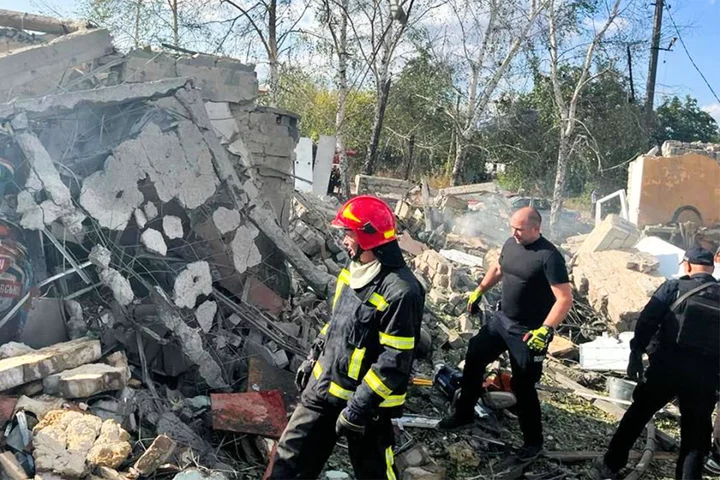
Ukraine-Russia war – live: Deadly Russian attack on memorial service was no blind strike, says Zelensky
Ukraine’s president Volodymyr Zelensky has said a Russian missile attack that killed 51 people at a memorial service was “no blind strike” and that Russian troops could not have been unaware of where they were striking. A Russian missile slammed into a cafe and shop in a village in northeastern Ukraine on Thursday, killing 51 people in Hroza village in the eastern Kharkiv region. The attack – thought to have been carried out using an Iskander ballistic missile – appears to have caused one of the biggest civilian death tolls in any single Russian strike. “One-fifth of this village has died in a single terrorist attack,” said regional Governor Oleh Synehubov. Mr Zelensky, who was attending a summit with European leaders, said: “Russian troops could not have been unaware of where they were hitting. This was no blind strike.” Separately, Russia’s Black Sea Fleet was forced into a major retreat from a Crimea port, according to the US-based Institute for the Study of War. At least 10 of Vladimir Putin’s warships retreated 237 miles to “bases further in the Russian rear” following intensified Ukrainian attacks. Read More Former Russian state TV journalist gets 8 1/2-year sentence in absentia for Ukraine war criticism Russia facing ‘functional defeat’ in the Black Sea – but Kyiv allies warn they are running out of ammunition Russia may attack civilian ships with sea mines and blame Ukraine, UK warns
1970-01-01 08:00
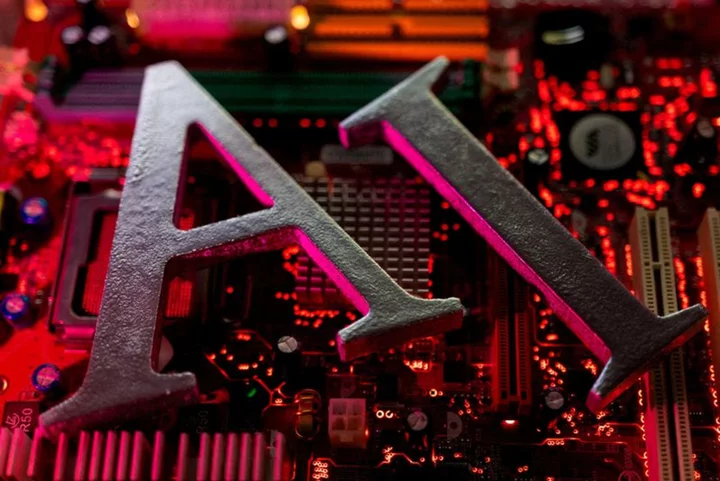
UNESCO, Dutch launch project to prepare for AI supervision
By Toby Sterling THE HAGUE The Netherlands and the U.N. on Thursday launched a project to help prepare
1970-01-01 08:00

Sanofi to Explore Acquisition of Cancer Drugmaker Mirati
French pharmaceutical giant Sanofi is exploring a potential acquisition of cancer drugmaker Mirati Therapeutics Inc., according to people
1970-01-01 08:00
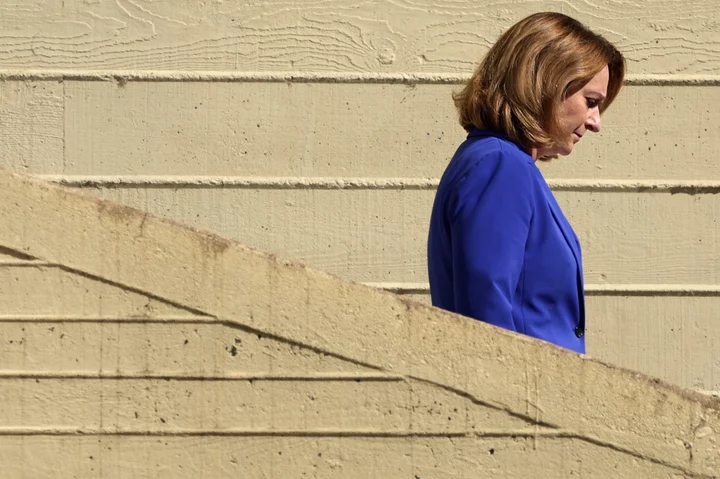
Political Dysfunction Undermines US Forces, Pentagon’s No. 2 Says
The Pentagon’s No. 2 official said that the threat of a government shutdown and other internal upheaval in
1970-01-01 08:00
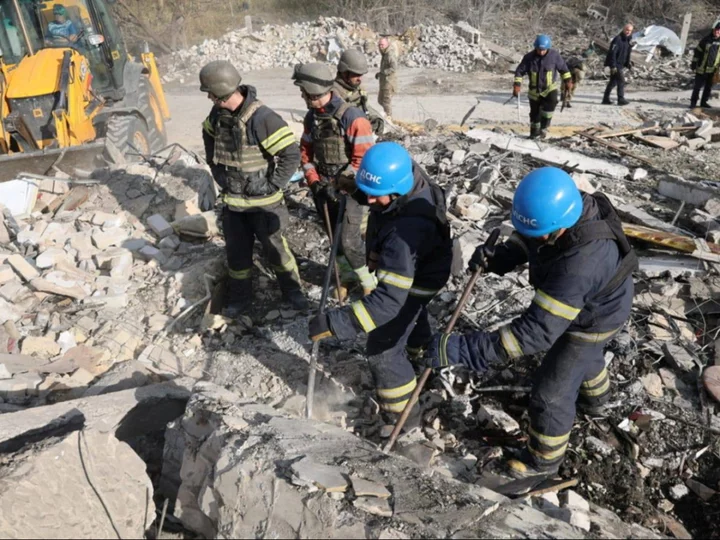
Russian missile strike kills more than 50 Ukrainians gathered for wake – in deadliest such attack in months
More than 50 people have been killed – including a six-year-old boy – after a Russian missile hit a shop and cafe in northeastern Ukraine where mourners had gathered for a wake. It is one of the deadliest such attacks since Vladimir Putin launched his invasion 19 months ago. Ukrainian President Volodymyr Zelensky, who was in the southern Spanish city of Granada for a conference with European leaders at the time of the strike, described the attack as a “brutal Russian crime” and accused Moscow of "genocidal aggression". During an emotional address to the European Political Community (EPC) in Spain, he cited the devastating impact Russian strikes were having on Ukrainian children in Kharkiv Oblast, forcing them to take school lessons in makeshift classrooms underground. A short time later officials in Kyiv said a Russian Iskander missile struck the 330-person village of Hroza in the Kharkiv region, killing at least 51, including a six-year-old boy. One image of the aftermath of the strike showed a number of bodies strewn across the floor, covered in the dust kicked up by the explosion. A handful of civilians could be seen crying behind them as two ambulance workers stood nearby. The interior minister, Ihor Klymenko, said that residents of Hroza had been holding a memorial service in the cafe that was reduced to rubble by the attack. "From every family, from every household, there were people present at this commemoration. This is a terrible tragedy," Mr Klymenko told Ukrainian television. Reacting to the strike, Kira Rudik, a leading Ukrainian opposition MP, told The Independent: “You may think that we would get used to the news of our people getting killed, but everytime it is a shock.” She reiterated the calls made by Mr Zelensky throughout the summit in Spain for more air defences and weapons from Western allies, arguing that it was essential for Ukraine “particularly to protect those places so close to the front”, such as Hroza. The village sits only around 30 miles from the nearest Russian soldiers. In recent months, thousands have fled the broader Kupyansk district, in which Groza is located, as thousands of Russian troops stage an assault of their own while Kyiv continues to push ahead with its counteroffensive further south. Mr Zelensky has visited the areas around the frontlines Kharkiv in recent days, recording a message of support for the troops battling to keep Russian forces from advancing. "The terrorists deliberately carried out the attack during lunchtime, to ensure a maximum number of casualties," Ukraine's defence minister, Rustem Umerov, said. "There were no military targets there. This is a heinous crime intended to scare Ukrainians." Mr Zelensky arrived in Spain for the European Political Community (EPC) forum on Thursday morning, meeting first with the Spanish President Pedro Sanchez before holding talks with various other leaders, including UK Prime Minister Rishi Sunak, France's President Emmanuel Macron and Italian prime minister Georgia Meloni. Though multiple issues, such as energy prices, were on the agenda for the EPC forum, the issue of supporting Ukraine was the “core” topic of discussion, according to European Commission President Ursula von der Leyen. Mr Sunak reiterated Britain's long-term support for Ukraine and said that he would be encouraging European leaders to work together to supply further defensive weapons. Both Mr Zelensky and his top aide Andriy Yermak said prior to arriving in Spain that securing new air defence systems was their top priority ahead of the winter, when Russia is expected to ramp up its missile campaign on major cities across the country. Mr Zelensky told the leaders in Granada that by providing additional military equipment to Ukraine, European countries could help ensure that a "drone, tank, or any other Russian weapon will not strike anyone else in Europe". In the wake of the attack in Kharkiv, Mr Zelensky added in a social media post: "Now we are talking with European leaders, in particular, about strengthening our air defence, about strengthening our soldiers, about giving our country protection from terror". A Spanish government source later confirmed to Reuters that Mr Sanchez had heeded that call, reporting that Spain would send both an air defence and anti-drone system to Kyiv. Ahead of the summit, German media reported that German Chancellor Olaf Scholf was reluctant to donate to Ukraine long-range Taurus missiles, despite widespread pressure from his allies to do so, over fears it would escalate tensions with Russia. The chancellor is reportedly concerned that Ukraine will use the missiles, which have a range further than the British Storm Shadows, Kyiv’s longest-range weapon to date, to hit the Kerch Strait Bridge connecting Russia to the Moscow-occupied Crimean peninsula. Mr Zelensky met with Mr Scholz on Thursday, with the two leaders discussing “working on providing Ukraine with an additional ‘Patriot’ [air defence] system for the winter months”. The meeting in Granada was also a space to shore up support for Kyiv after a weekend of political turmoil in the US. A dispute among the Republican majority in the lower chamber of the US Congress has complicated spending negotiations and prompted Democrat President Joe Biden to go from confident that a deal will be made on further Ukraine aid from Washington to openly expressing concern. Mr Zelensky admitted that there was a “political storm” over Washington but said he was “confident” that it would be resolved. “They are strong people with strong institutions, and a strong democracy,” he said. “I am confident in America.” Elsewhere, at an address in the Russian resort city of Sochi, Mr Putin accused the West of losing touch with reality over the Ukraine war. In a speech that aired many of his oft-repeated grievances against Ukraine's allies over their support for Kyiv, he also held out the possibility that Russia could resume nuclear testing for the first time in over three decades and might withdraw its ratification of a landmark nuclear test ban treaty. Read More IMF chief says the global economy has show resilience in the face of COVID, war and high rates Russia has tested a nuclear-powered missile and could revoke a global atomic test ban, Putin says Live: Karine Jean-Pierre holds White House briefing as Biden vows to stand by Ukraine
1970-01-01 08:00
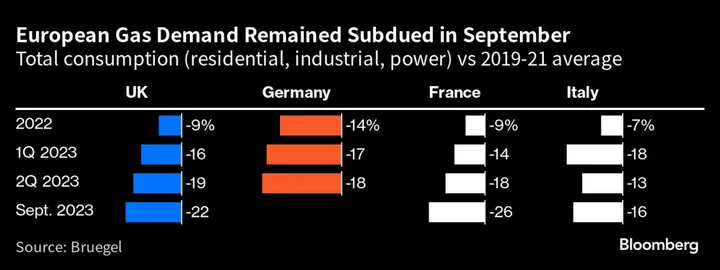
European Gas Tumbles as Abnormal Warmth Outweighs Supply Risks
European natural gas prices slumped following a brief rebound earlier this week, as unusual October warmth and lackluster
1970-01-01 08:00
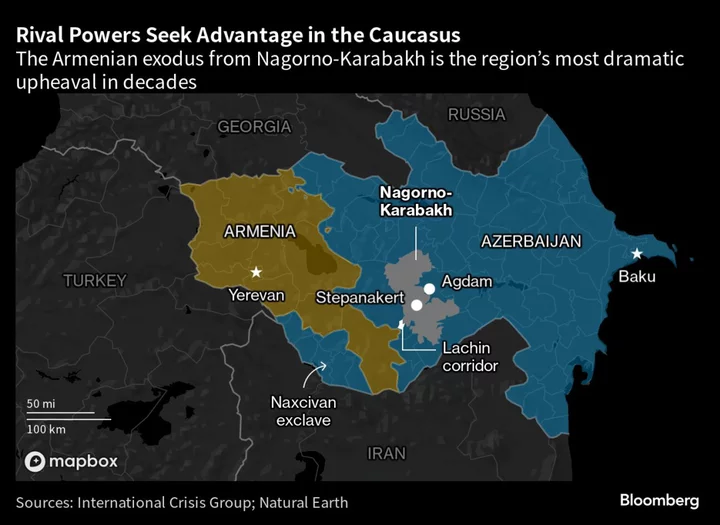
Azerbaijani Snub of Macron Casts Shadow Over Peace Push
Azerbaijan’s refusal to attend a summit orchestrated by Emmanuel Macron is casting doubt on the French president’s diplomatic
1970-01-01 08:00
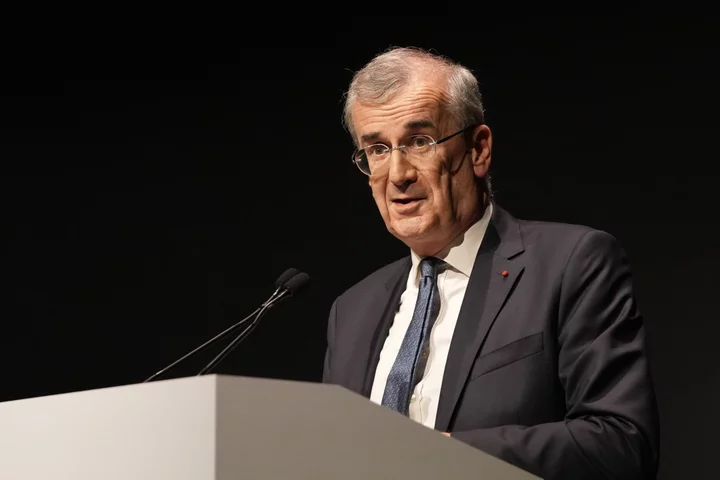
ECB’s Villeroy Sees No Justification for More Rate Hikes Now
There are no grounds at present for the European Central Bank to raise interest rates any further, Governing
1970-01-01 08:00
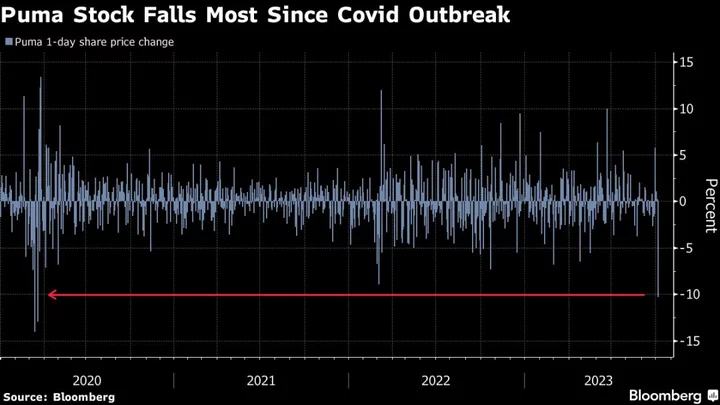
Puma’s Call With Analysts Sends Stock Down Most in Three Years
Puma SE shares had their biggest intraday drop in more than three years after the sportswear company’s comments
1970-01-01 08:00
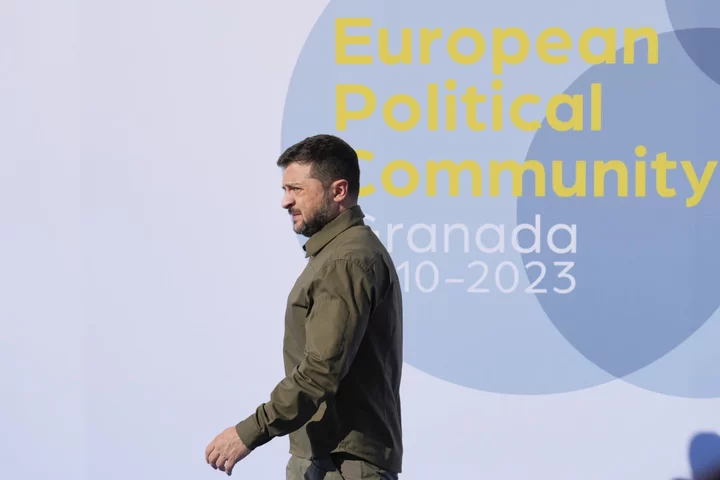
Zelenskiy Seeks More Europe Support as Funding Worries Mount
Ukrainian President Volodymyr Zelenskiy met with European leaders to press for continued support against Russia’s invasion, amid concerns
1970-01-01 08:00
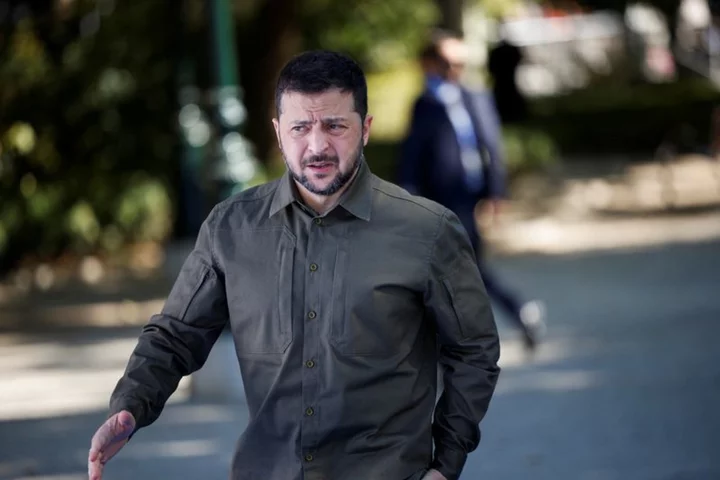
Zelenskiy tells Europe: Russia will attack others if Ukraine loses
By Andrew Gray, Gabriela Baczynska and Belén Carreño GRANADA, Spain (Reuters) -Ukrainian President Volodymyr Zelenskiy warned European leaders on Thursday
1970-01-01 08:00
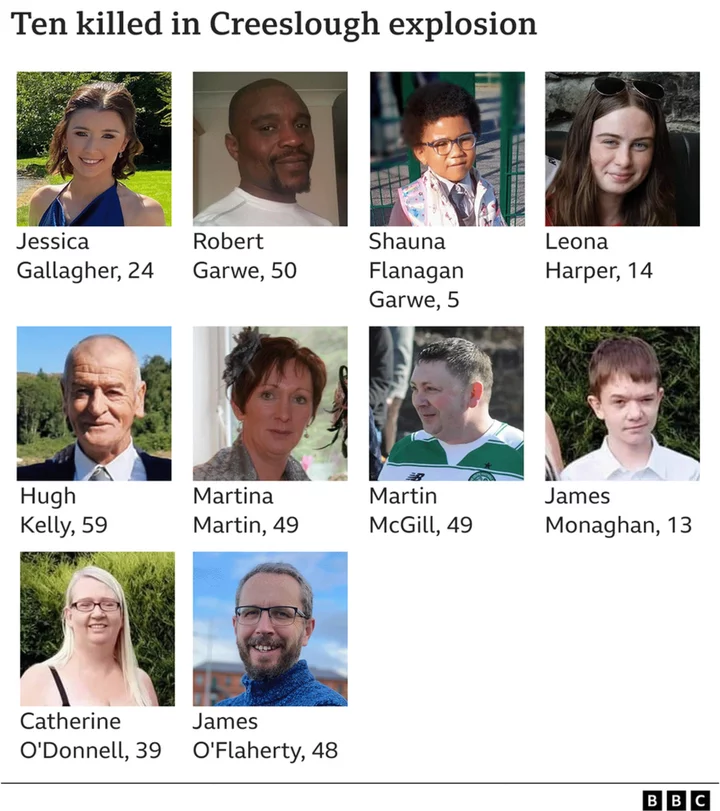
More than 1,350 lines of inquiry into Creeslough blast
Gardaí say they are continuing to investigate the fatal explosion one year on.
1970-01-01 08:00
